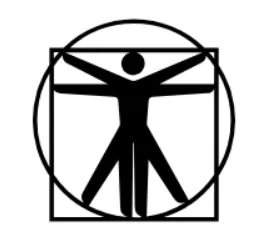Plantar fasciitis is a common foot condition that causes pain and inflammation in the plantar fascia, a thick band of tissue that runs along the bottom of the foot, connecting the heel bone to the toes. It can be a debilitating condition, causing discomfort and limiting mobility. One of the factors that can contribute to plantar fasciitis is tight calves.
Excessive tightness in the calves can contribute to the development of plantar fasciitis, a common condition that causes pain and inflammation in the plantar fascia, a thick band of tissue that runs along the bottom of the foot from the heel to the toes. The plantar fascia is closely connected to the calf muscles, and any tension or tightness in the calf muscles can place increased strain on the plantar fascia, leading to pain and inflammation.
When the calf muscles, specifically the gastrocnemius and soleus muscles, become tight, they can cause a pulling effect on the Achilles tendon, which in turn pulls on the heel bone. This can cause inflammation in the heel area, leading to pain and discomfort. The tight calf muscles can also cause the foot to flatten out or become excessively pronated, which places additional stress on the plantar fascia.
Additionally, tight calves can limit ankle mobility and prevent the foot from flexing properly, which can also contribute to plantar fasciitis. When the foot is unable to move through its full range of motion, it can cause stress and strain on the plantar fascia, leading to micro-tears and inflammation.
There are many possible causes of tight calves, including:
- Lack of stretching: Failing to stretch the calf muscles regularly can lead to tightness and stiffness. This is particularly true if you lead a sedentary lifestyle or spend a lot of time sitting.
- Overuse: Engaging in activities that require a lot of calf muscle use, such as running or jumping, can cause the muscles to become overused and tight.
- Poor footwear: Wearing shoes with inadequate support or that are too tight can cause the calf muscles to become tight and painful.
- Injuries: Sustaining an injury to the calf muscles or Achilles tendon can cause tightness and discomfort.
If you have tight calves, it's essential to take steps to address the issue to prevent plantar fasciitis and other foot problems. Here are a few tips to help loosen up your calf muscles:
- Stretch regularly: Incorporate calf stretches into your daily routine. Simple stretches like the wall calf stretch, downward dog yoga pose, and seated calf stretch can all help stretch the calf muscles.
- Wear proper footwear: Choose shoes with good arch support and cushioning to reduce the strain on the calf muscles.
- Use a foam roller: Rolling the calf muscles with a foam roller can help release tension and promote blood flow.
- Chiropractic care: Chiropractic care can also be helpful in treating plantar fasciitis by using chiropractic adjustment on foot and soft tissue techniques, such as myofascial release by cupping therapy and muscle scraping to break up scar tissue and adhesions in the calf muscles and plantar fascia.
- Avoid overuse: Take breaks from activities that require a lot of calf muscle use to allow the muscles to rest and recover.
In conclusion, tight calves can contribute to plantar fasciitis and heel pain by putting excess strain on the plantar fascia. Taking steps to stretch and loosen up the calf muscles can help reduce the risk of developing these foot conditions. If you experience ongoing foot pain, it's essential to consult with our chiropractic physician at SpineCore Chiropractic to determine the underlying cause and develop a treatment plan.

